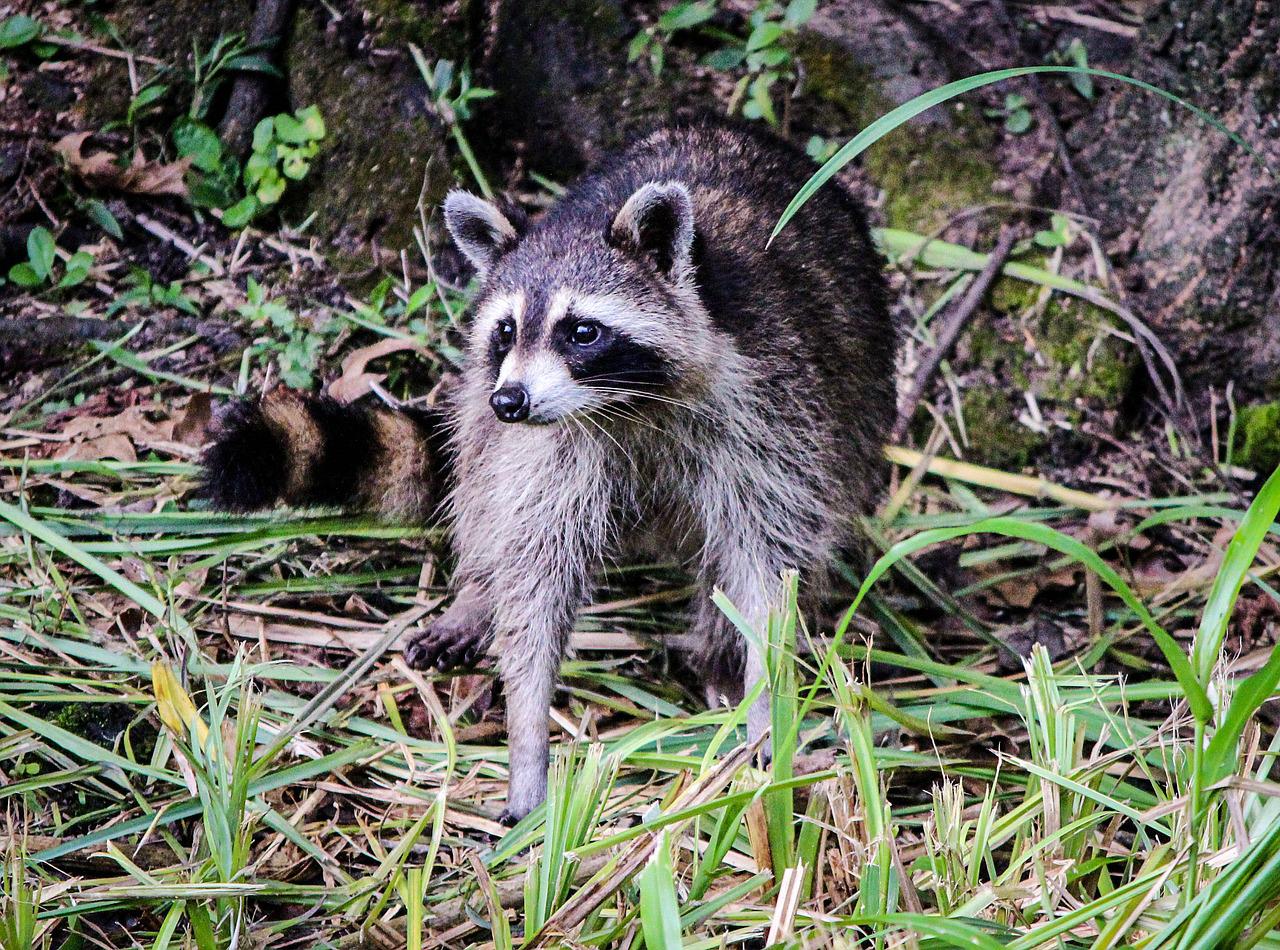Wild raccoons live 3 to 5 years, and captive raccoons can live up to 15 years. Many baby raccoons don’t live for more than a year, but once a raccoon makes it past their first year of life, the chance of survival increases significantly.
The age of a raccoon can be determined by its weight, length, diet, and tooth wear. Researchers can identify how long the raccoon lived after its death by studying its organs and eyes.
Table of Contents
What’s the Longest Living Raccoon?
The oldest known raccoon in captivity lived to be 19 years old, but not much information was recorded about it.
The most recent oldest raccoon on record was named Merlin and he lived to be 14 years old.
It is nearly impossible to correctly predict a raccoon’s exact lifespan since so many factors affect it.
However, history proves that raccoons in captivity live longer than raccoons in the wild.
Even though keeping raccoons in captivity helps them live longer, having a pet raccoon is generally not recommended since they can never fully become domesticated.
Why do raccoons live such short lives?
Since raccoons are intelligent creatures with defensive features, their short life expectancy may be a surprise.
Below are reasons raccoons don’t live very long, most reasons applying to wild raccoons.
1. Humans
Humans are the leading cause of raccoon death. Humans target raccoons since these little predators dig in trash cans, ruin gardens, invade homes, and much more.
Many raccoons die from traps, poison, and even gunshots by homeowners.
Humans have impacted habitat loss for raccoons as well. Making highways, homes, and businesses takes room that the raccoon population would have resided in.
All of these effects of humans shorten the average lifespan of raccoons.
2. Winter Weather
Raccoons can survive in winter climates, but finding food during a long and extreme winter is challenging.
Since they struggle to eat during the winter, they become weaker, giving their predators an advantage when they attack.
Sometimes the harsh winter weather alone is enough to kill a common raccoon, causing them to freeze to death if they are not in an adequate sheltering space or go out to hunt for food.
3. Disease
Diseases are a common factor in determining how long the animal will live. While raccoons can suffer from many diseases, there are 4 prevalent diseases among raccoons.
The most common disease and the leading natural cause of death for raccoons is distemper, which attacks the respiratory, gastrointestinal, and nervous systems, leading to paralysis and starvation.
Distemper is expected in the springtime when animals emerge from hibernation and are active. It is a very contagious disease that unvaccinated dogs spread. It can be transmitted through any contact with an animal’s bodily fluid, such as feces, blood, or saliva.
Rabies is a disease that is a threat to any mammal. It causes inflammation in the brain and is often fatal. It is contagious among animals and humans.
Raccoons are one of the primary carriers of this virus, along with foxes, skunks, coyotes, and bats.
Raccoons are common carriers of another disease called parvovirus. Parvovirus is incurable.
Dehydration from this virus is the main reason it is so deadly. Animals become dehydrated from it because it causes persistent vomiting and diarrhea. Raccoons can be vaccinated against this virus.
Baylisascaris procyonis, the scientific name for raccoon roundworm, is a disease many raccoons suffer from.
This disease is caused by baylisascaris worms, which are interstitial parasites. The different species of the worm vary with the species of the animal host. It spreads through the eating of animal droppings.
Raccoons can be treated with drugs to kill the worms, but wild raccoons are not cared for in this way, so many die from the disease.
4. Predators
Since raccoons can defend themselves reasonably well and since some raccoons reside in urban areas, predators are not a top cause of raccoon death, but they are still a threat.
Larger mammals like wolves and coyotes stand a good chance of attacking a raccoon. Predators of raccoons also include owls, hawks, cougars, foxes, bobcats, and other wild animals.
These predators hunt young raccoons since they are smaller and more vulnerable. Against larger animals, raccoons aren’t likely to survive.

